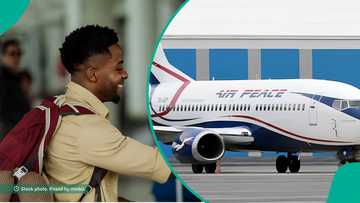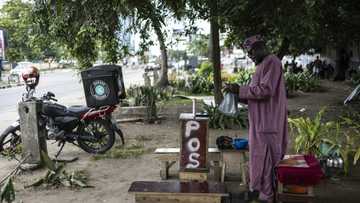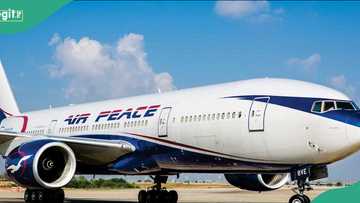NANTA Condemns Cross-Border Trading in Air Tickets as Passengers Lose N25m to Capital Flight, Others
- Travel Agencies have protested the sale of international airline tickets owing to the significant loss of national revenue
- The president of NANTA stated that these losses are mostly the result of cross-border tickets' customary non-refundable character
- He explained that foreign players entering into the market have a duty to act fairly and not damage the industry
Legit.ng journalist Zainab Iwayemi has over 3-year-experience covering the Economy, Technology, and Capital Market.
The National Association of Nigerian Travel Agencies (NANTA) has once more denounced international plane ticket trading due to the significant loss of national revenue.

Source: Getty Images
Yinka Folami, President of NANTA, told New Telegraph that the notice on cross-border trading needed to be served immediately due to the concerning number of stories about significant losses that travel consumers had suffered as a result of purchases made by some of their members.
He pointed out that the usual non-refundable nature of cross-border tickets and the subpar service that comes with them are primarily to blame for these losses, which can reach N25 million.
The president also added that cross-border ticket sales are frequently severely restricted as time zone variations cause delays in communication.
He also said that adjustments take longer to complete and that there are many no-shows, which resulted in the loss of N15 million in tickets.
He enumerated the negative repercussions of cross-border trade, such as capital flight, additional economic downturn, negative consumer effects like subpar services and significant financial losses, depreciation of local assets, threat to local industry, and potential job losses.
NANTA meets important stakeholders
The head of NANTA announced that they agency had met with all airlines, Global Distribution System (GDS) companies, the Nigerian Civil Aviation Authority (NCAA), and FCCPC over the previous two and a half months.
He also mentioned that they were now set to meet with Festus Keyamo, minister of aviation and aerospace development.
He said,
“Our message to all has been single-minded; fair play, protection of our market, and strengthening NANTA.

Read also
Air Peace replies FCPPC, insists airfares are affordable: “We are a proud Nigerian airline”
He also said that the agency will do a comprehensive report via a general Town Hall Meeting (virtual) on the 100th day of the present executive administration.
“However, pending that, it is urgent to serve this notice on cross-border trading, because of the alarming frequency of reports about huge losses incurred by travel customers through the purchases by some of our members.
“These losses that go as high as N25 million from some of the cases that have been reported to us are mostly due to the generally non-refundable status of cross-border tickets and the poor service that is associated with them.”
Folami stated that, in contrast to popular belief, the International Air Transport Association (IATA) did not adjust Return on Equity (ROE) after carefully examining the data and discovering that all of the figures published by IATA came from the FMDQ dashboard of the I&E FX Window, which was two days behind schedule.
He said,
“However, this practice by IATA; applying ROE daily, which many times ends up being significantly higher than parallel market rates, leaves room for speculation, encourages buying USD from the parallel market, and purchasing cross-border tickets. All of these put further pressure on the naira, with harmful consequences on our market.
Reason for hike in airfares
Legit.ng reported that domestic airlines have blamed the increasing airfares on foreign exchange volatility and surging inflation in Nigeria.
United Airlines' chief operating officer, Obiora Okonkwo, revealed that the aviation industry was being impacted by the nation's present economic difficulties.
According to Okonkwo, the airlines decided to raise tickets since the economy has not been expanding quickly enough and has been stagnant.
Source: Legit.ng




